I'm working on a C++ assignment where I'll create a search engine on a linked list of linked lists. As per the requirements, I can't use other libraries nor STL.
Basically it will be like this (I removed the variables from small list since they are irrelevant):

My structs are these:
struct small
{
int data;
struct small *next;
};
struct big
{
int playerID;
string playerName;
string playerTeam;
struct small *goals;
struct big *next;
};
Here's the relevant code snippet, I think the problem is at addGoals(...) where I'm failing to assign the small element to the temp->goals.
class biglist
{
private:
big *head, *tail;
public:
biglist()
{
head = NULL;
tail = NULL;
}
. . .
void createbig(int ID, string name, string team)
{
big *temp = new big;
temp->playerID = ID;
temp->playerName = name;
temp->playerTeam = team;
temp->goals = NULL;
temp->next = NULL;
if (head == NULL)
{
head = temp;
tail = temp;
temp = NULL;
}
else
{
tail->next = temp;
tail = temp;
}
}
void addGoals(int id, small *s)
{
big *temp = head;
while (temp != NULL)
{
if (temp->playerID == id)
{
temp->goals = s;
break;
}
temp = temp->next;
}
}
void test()
{
big *temp = head;
while (temp != NULL)
{
if (temp->playerID == 1)
{
if (temp->goals !=NULL)
{
cout << temp->goals->data << endl;
}
else
{
cout << "goals null" << endl;
}
}
temp = temp->next;
}
}
}
. . .
class smalllist
{
private:
small *head, *tail;
public:
smalllist()
{
head = NULL;
tail = NULL;
}
void createsmall(int ID, biglist b)
{
small *temp = new small;
temp->data = ID;
temp->next = NULL;
if (head == NULL)
{
head = temp;
tail = temp;
temp = NULL;
}
else
{
tail->next = temp;
tail = temp;
}
b.addGoals(1, temp);
}
};
Finally, my main code:
int main()
{
biglist obj;
obj.createbig(1, "Player1", "Team1");
obj.createbig(2, "Player2", "Team2");
obj.displaybig();
smalllist sml;
sml.createsmall(9, obj);
sml.displaysmall();
obj.displaybig();
obj.test();
}
Debugging throws an exception at:
cout << temp->goals->data << endl;
saying that
Exception thrown: read access violation. temp->goals was nullptr.
I'm 90% sure I messed up something with pointers; but other stuff I've tried gave errors before compiling. I checked out some books / tutorials but couldn't figure it out.
Also if you have a better approach or saw one of the horrible mistakes that I'm making, please don't hold back :)
Thanks.
EDIT I changed my createbig() like this.
Currently it works with following codes:
void createbig(int ID, string name, string team, small *s)
{
big *temp = new big;
temp->playerID = ID;
temp->playerName = name;
temp->playerTeam = team;
temp->goals = s;
temp->next = NULL;
if (head == NULL)
{
head = temp;
tail = temp;
temp = NULL;
}
else
{
tail->next = temp;
tail = temp;
}
}
and added this to small
small getsmall(int i)
{
small *temp = head;
while (temp != NULL)
{
if (temp->data == i)
{
return *temp;
}
}
}
My final main function is
int main()
{
smalllist sml;
sml.createsmall(9);
sml.displaysmall();
biglist obj;
small s = sml.getsmall(9);
obj.createbig(1, "Player1", "Team1", &s);
//obj.createbig(2, "Player2", "Team2");
obj.displaybig();
obj.test();
}
While it ends successfully now, it gives the address of goals and I get this in debug section:
